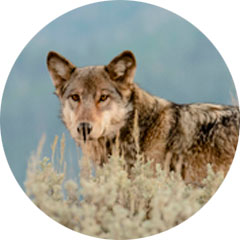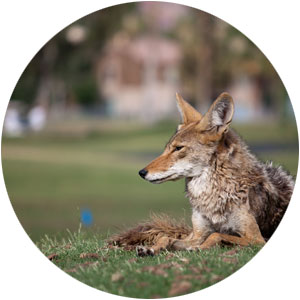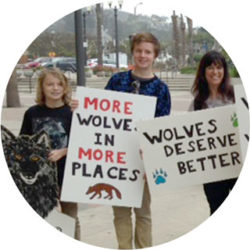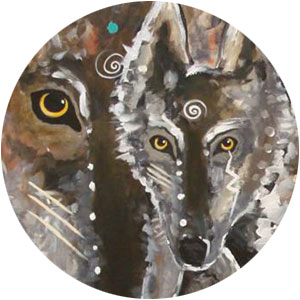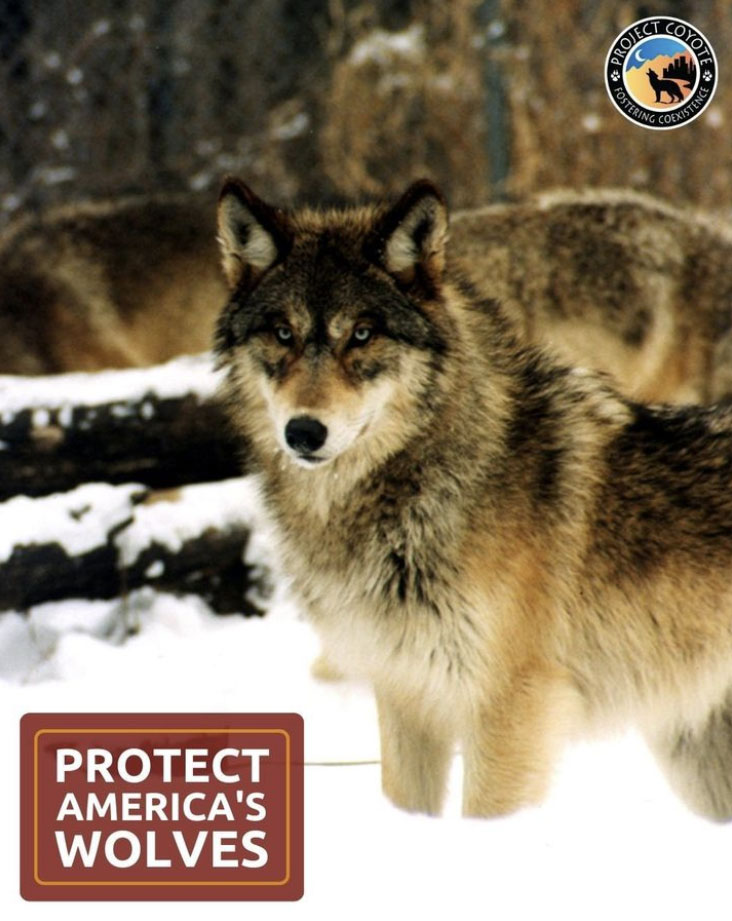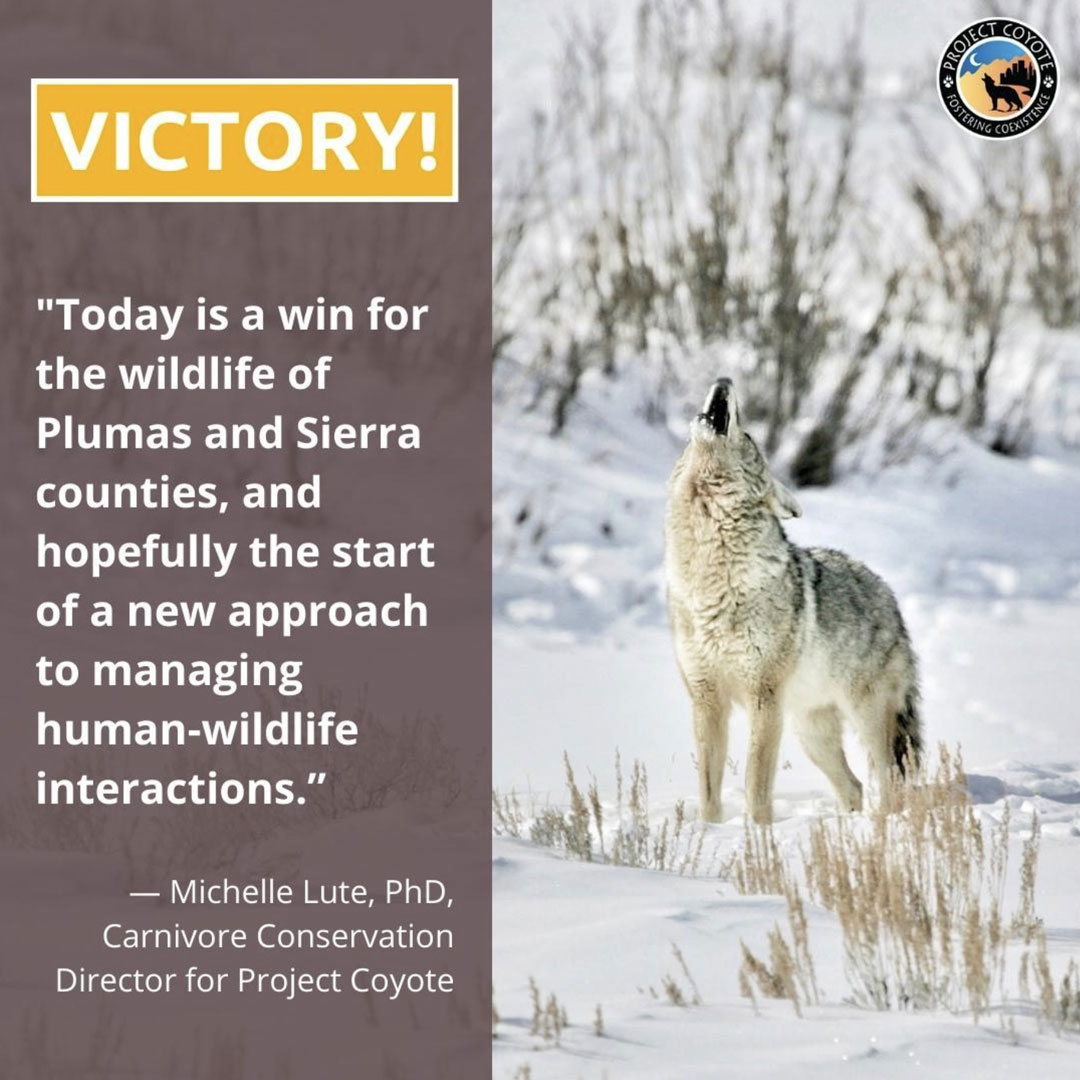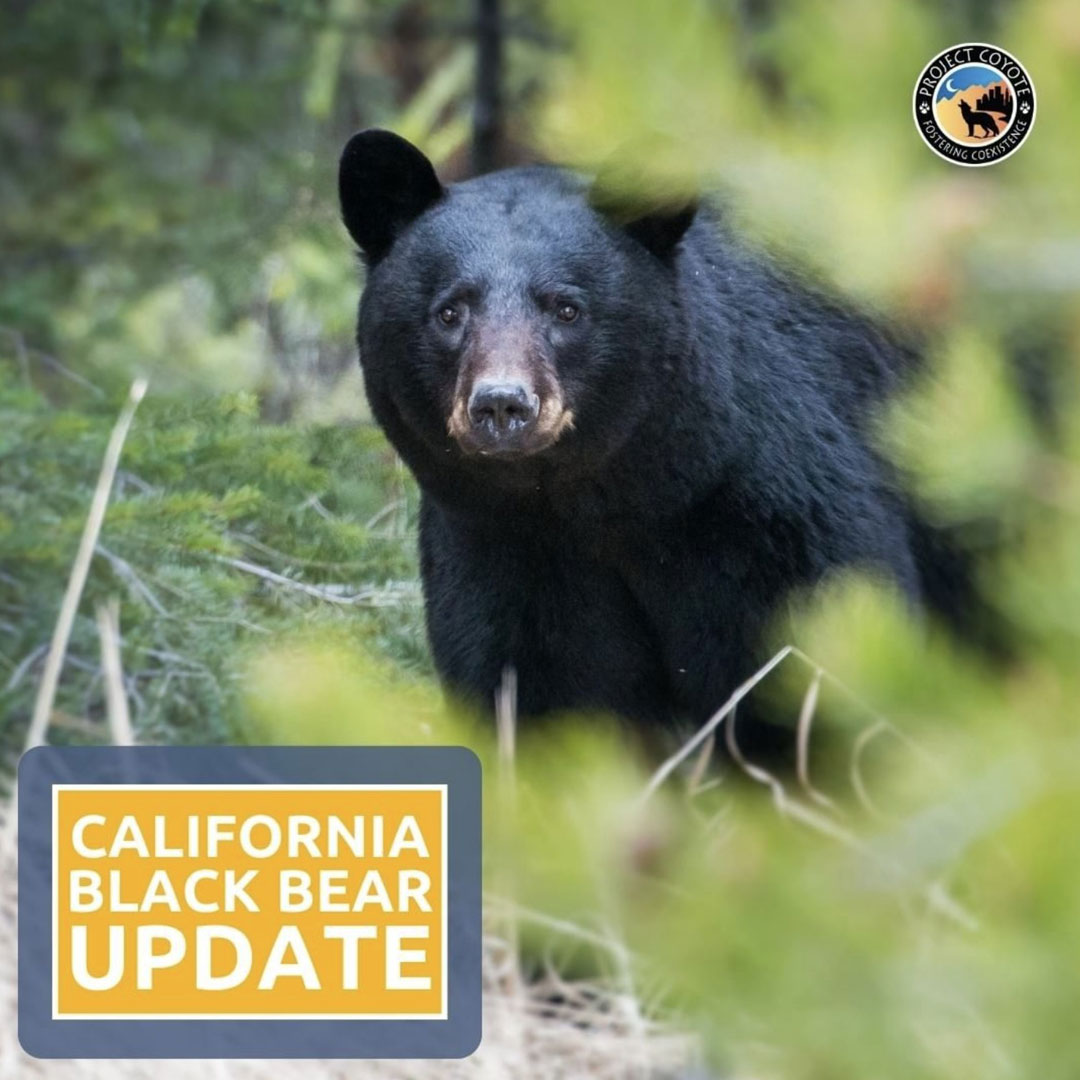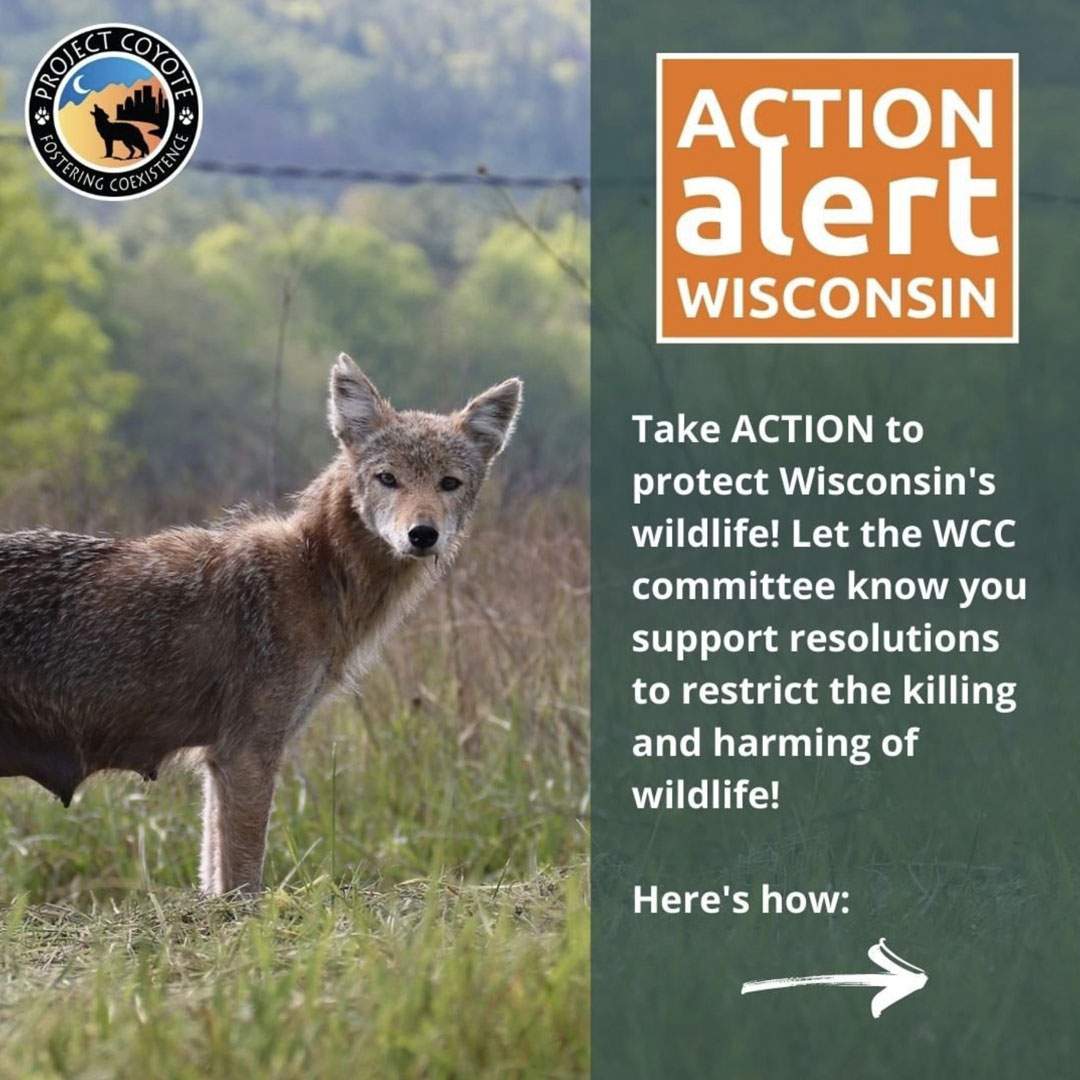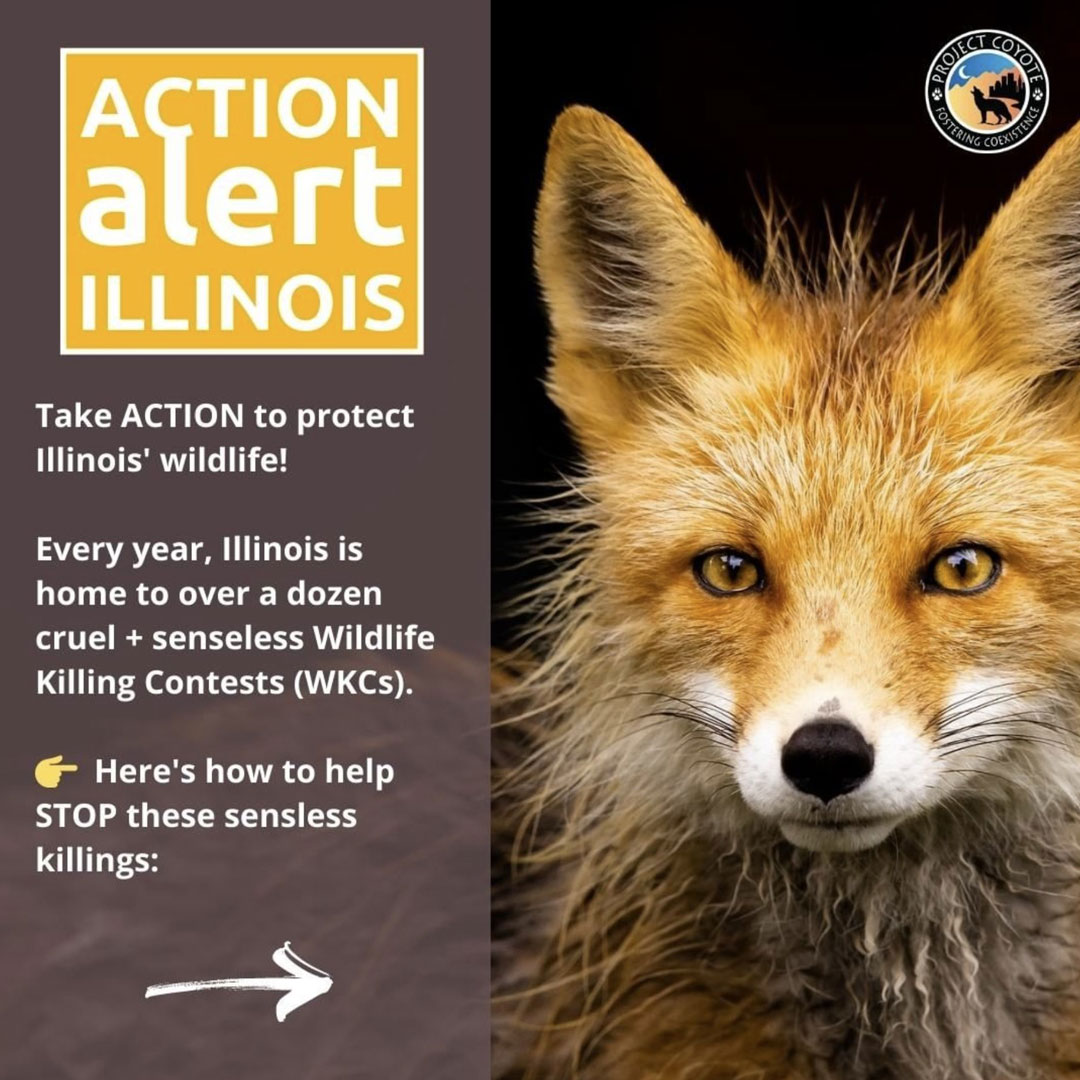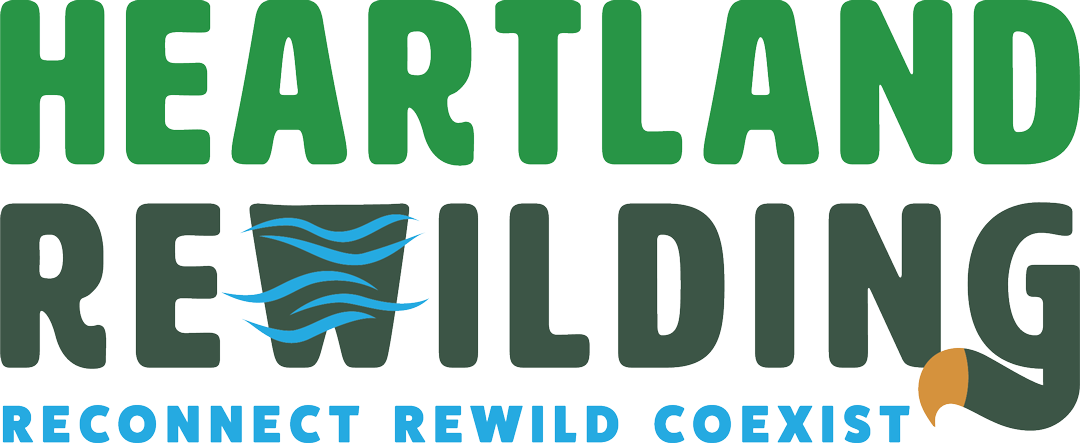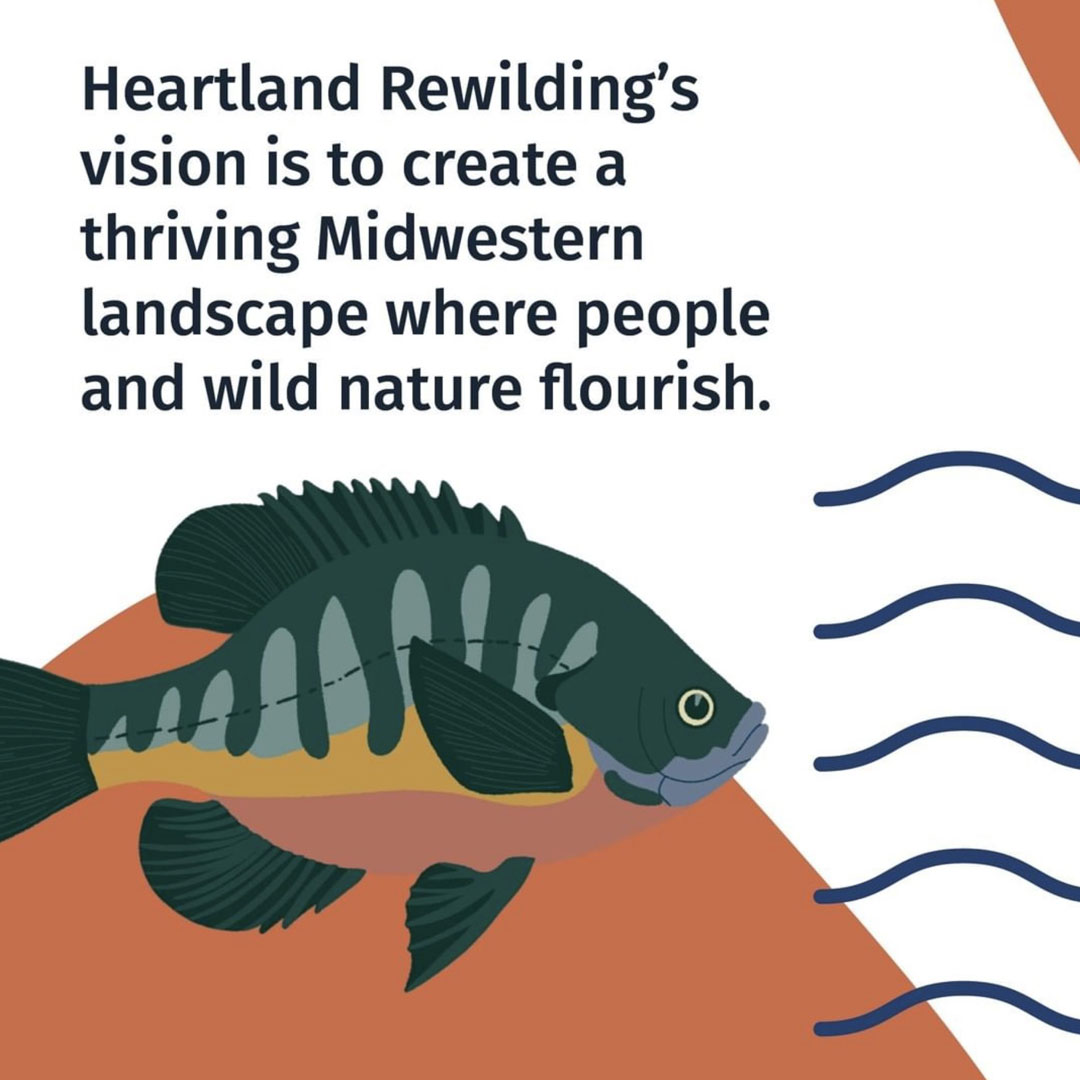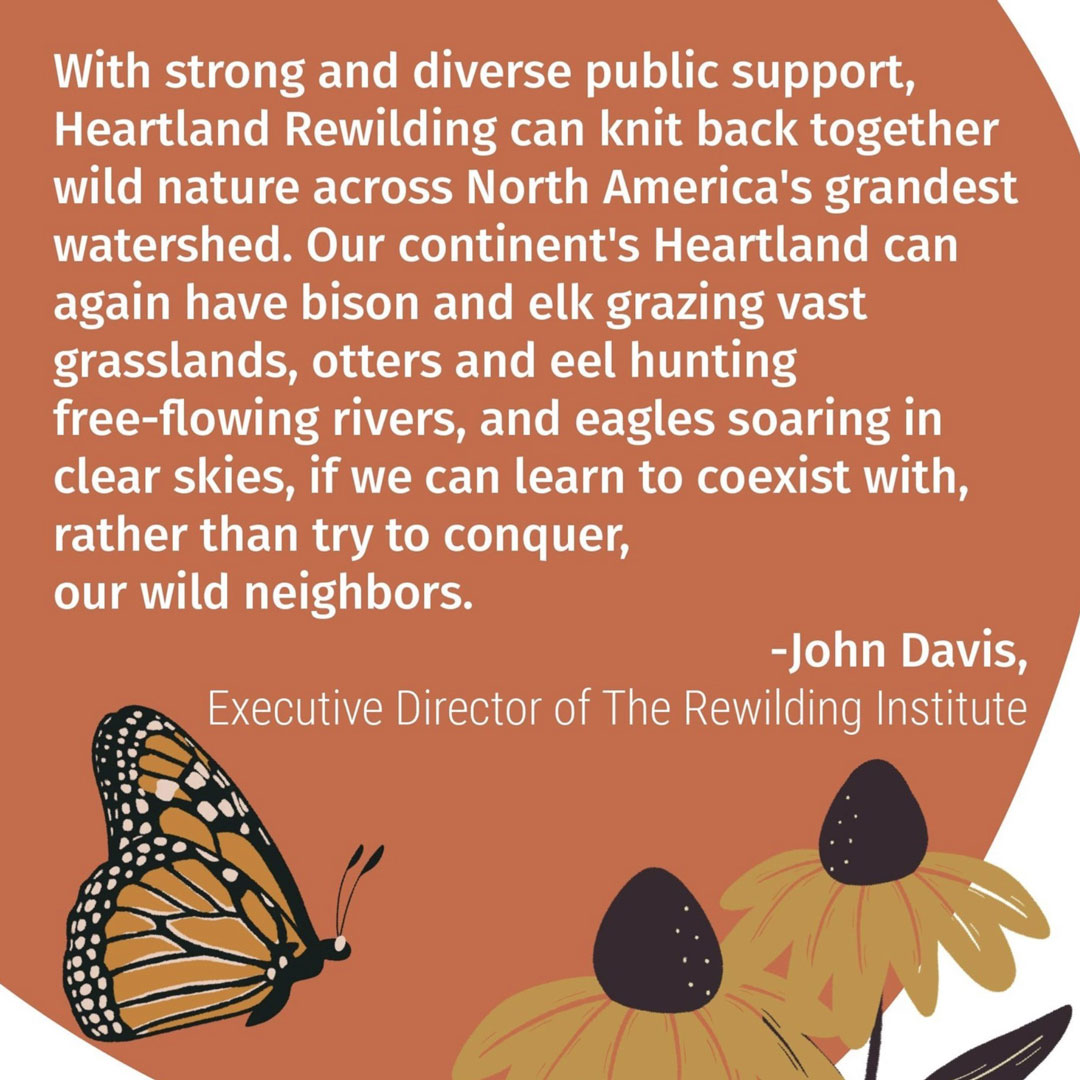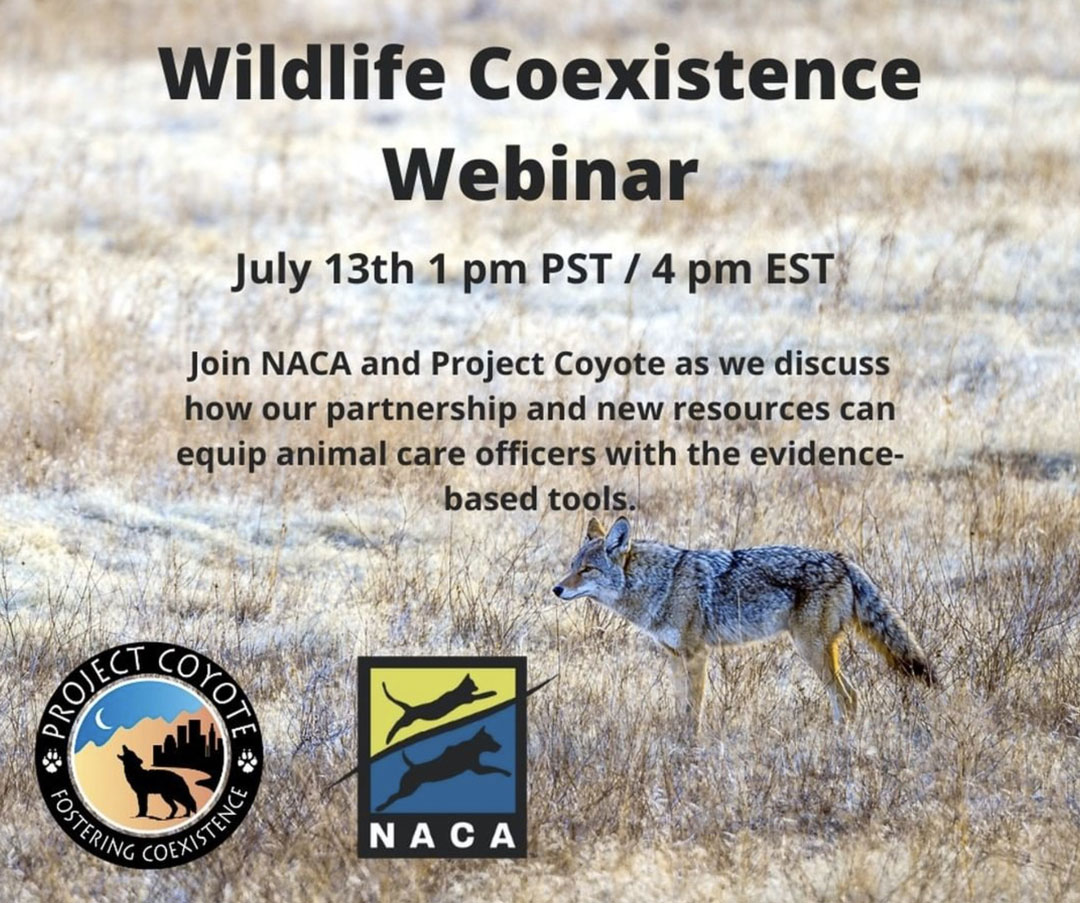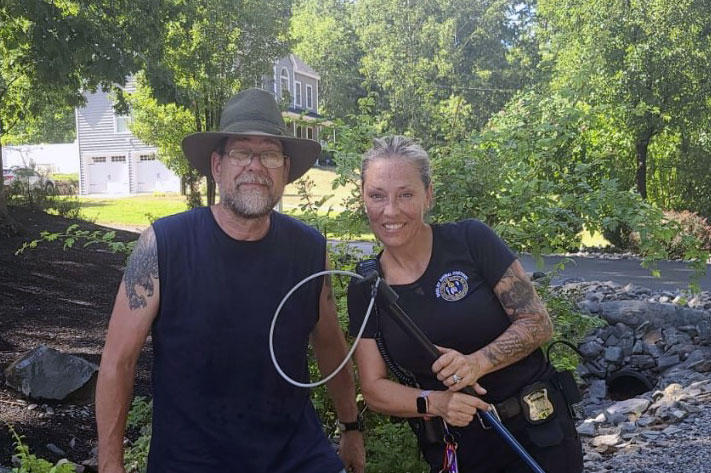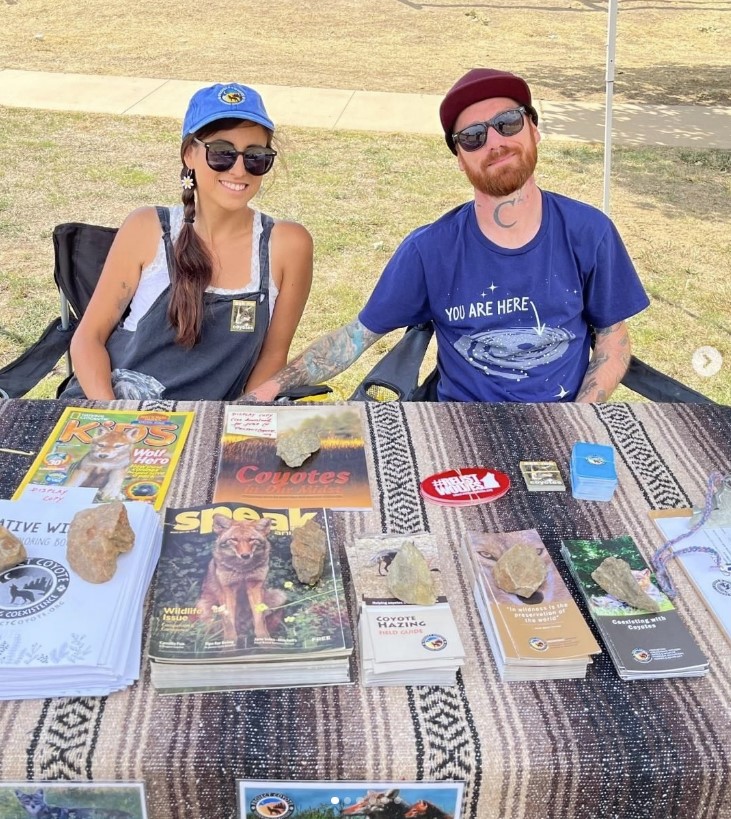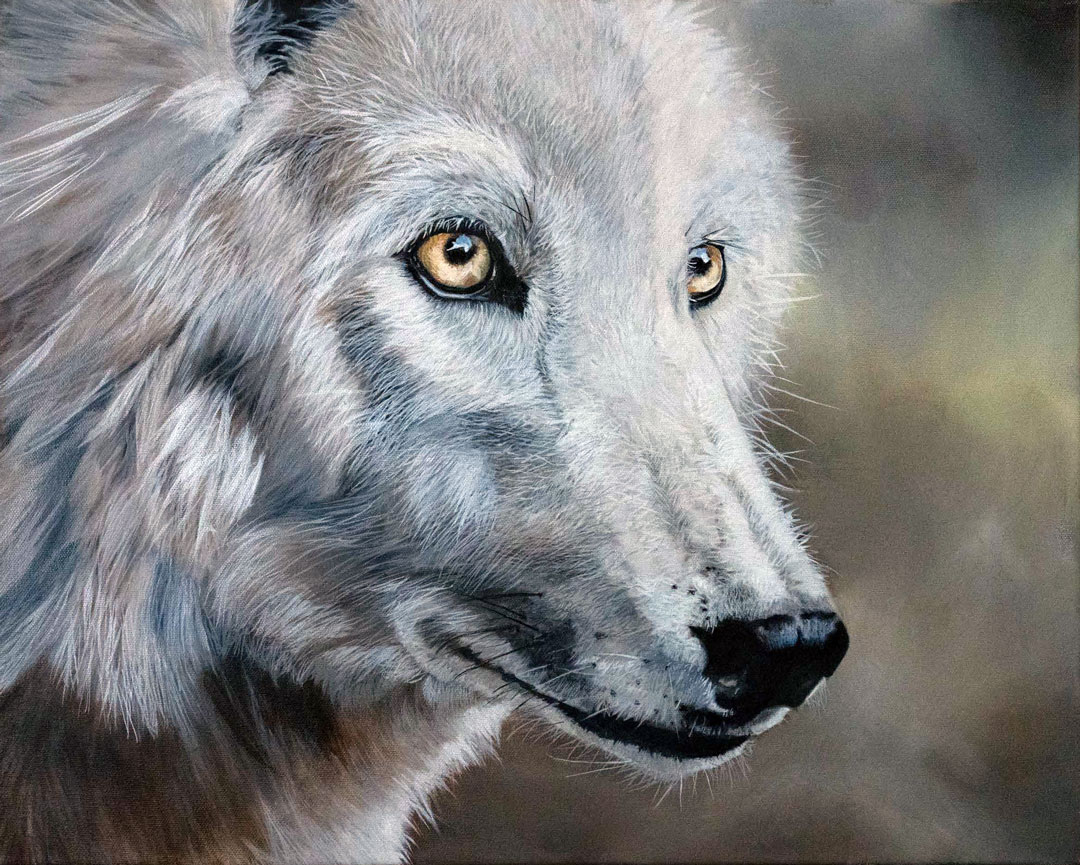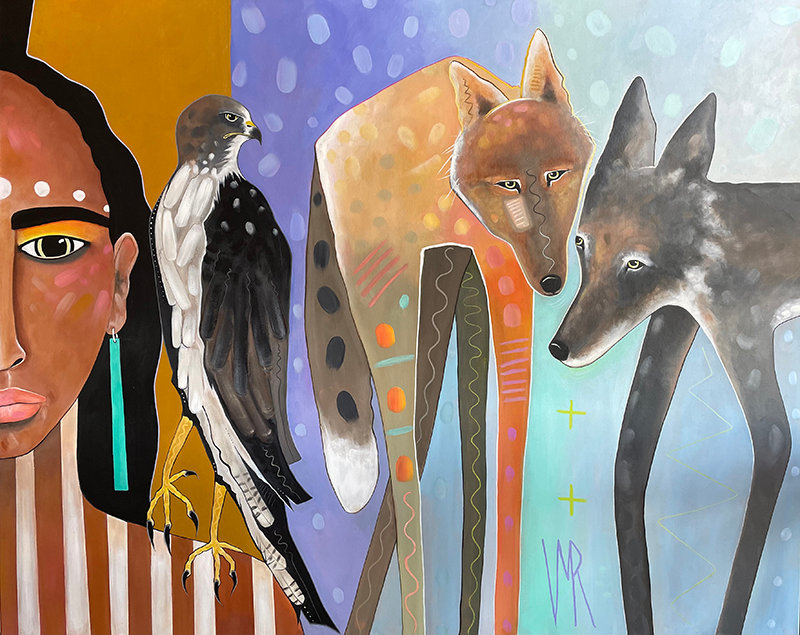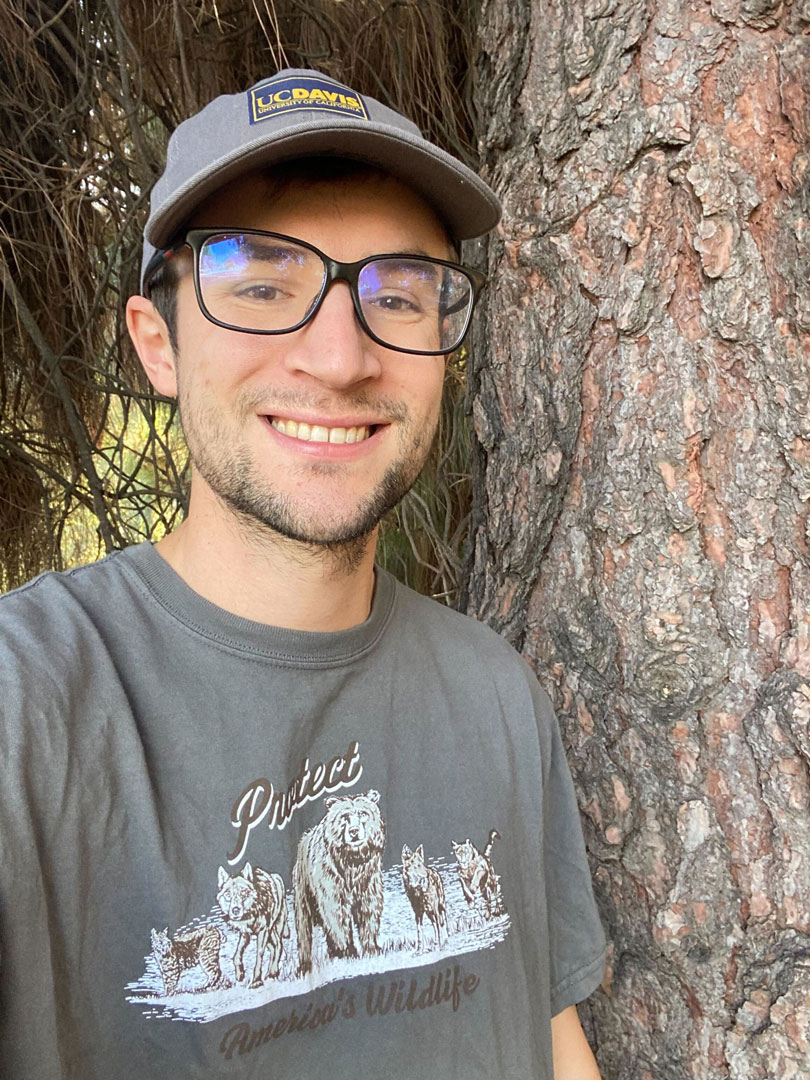NOVEMBER 2022 IN THIS ISSUE:
Never doubt that a small group of thoughtful, committed citizens can change the world; indeed, it’s the only thing that ever has.
~Margaret Mead
As you’ll read below, Project Coyote uses every tool in the toolbox to further carnivore conservation and promote coexistence– including direct lobbying and policy change, proactive public education and outreach, grassroots organizing and litigation when needed.
That’s why we just filed a lawsuit in Montana State Court alleging that the state’s extreme anti-wolf hunting and trapping policies violate the Montana Constitution and several state and federal laws. After more than a year of getting ignored by state and federal policymakers, we determined this lawsuit is our best bet to save wolves in the Northern Rockies.
And our record of success is growing with our recent lawsuit against Plumas and Sierra counties (CA) countering their failure to properly evaluate the environmental impacts of their U.S. Department of Agriculture’s Wildlife Services program leading to a successful moratorium on lethal wildlife control until a full assessment is carried out.
From public presentations and workshops about living with coyotes and other wild animals to organizing coalitions around banning wildlife killing contests and Protecting America’s Wolves, our staff and volunteers are active across the country in advocating on behalf of apex predators.
We’re also excited to have launched our new Heartland Rewilding initiative aimed at restoring wildlife and wildlands to the Mississippi River Watershed in conjunction with The Rewilding Institute and Half-Earth Project.
Through our Artists for Wild Nature program we engage painters, photographers, writers, musicians and other artists in reaching a wider audience with our message of compassionate coexistence– while sharing the beauty and individual personalities of the species we work so hard to protect.
I hope you enjoy this latest edition of our Coyote Chronicles and encourage you to share it with others.
For the Wild Ones,
Camilla Fox
Founder & Executive Director
Carnivore Conservation & Coexistence ~ Protect America’s Wolves
On October 27, we—along with our co-plaintiffs at WildEarth Guardians—filed a lawsuit in Montana State Court alleging that the state’s extreme anti-wolf hunting and trapping policies violate the Montana Constitution, Montana Administrative Procedure Act (MAPA), Public Trust Doctrine, and several federal laws meant to protect wildlife on federally-managed lands. As explained in our complaint, the State of Montana, the Montana Department of Fish, Wildlife, and Parks (MFWP), and the Montana Fish and Wildlife Commission are violating the law by relying on stale and insufficient scientific data in order to authorize the killing of roughly 40% of the state’s wolf population this coming winter. Moreover, the lawsuit alleges that the state is flouting its responsibility to manage wildlife for the benefit of the entire public and is overstepping its management authority by allowing wolf slaughter on the boundaries of federal lands. Despite the requirement that Montana’s 2002 wolf plan be reviewed every five years, the state has never updated it, engaged in a formal review, or assessed the rapid development of conservation science and carnivore ecology over the past two decades. The lawsuit comes in the middle of Montana’s 2022/23 wolf hunting season, with wolf trapping, a season during which roughly half of all killing occurs, set to start on November 28. Stay tuned as this lawsuit proceeds!
This year, we launched our Protecting America’s Wolves advocacy campaign. Since then, we’ve been equipping our supporters with weekly targeted actions aimed at protecting our nation’s wolves with a particular focus on the wolves of the Northern Rockies, who remain federally unprotected. But our advocacy efforts reach as far as wolves’ range, including in Colorado, where wolves are set to be reintroduced by 2023. We introduced an alternate wolf restoration plan with WildEarth Guardians and in partnership with 14 other wildlife organizations, provided to Colorado Parks and Wildlife (CPW) to offer a science-based alternative to the plan currently being developed. Additionally, USFWS announced their intent to prepare an environmental impact statement and publish proposed regulations for the 10(j) management rule, which will manage the reintroduced Colorado wolves as a nonessential experimental population (allowing for more liberalized killing for livestock conflicts) despite their current status as federally endangered. We urged supporters to advocate for USFWS to draft a 10(j) management rule guided by the best available science and submitted our own comments, along with public comment opportunities for Michigan, Minnesota and Montana. Lastly, our wolf advocacy reached into the Northeast, where we organized a sign-on letter to call on the New York Department of Environmental Conservation to take concrete steps to protect wolves returning to the state after a hunting incident in which a wolf was killed in December of 2021.
Carnivore Conservation & Coexistence ~ Reforming Wildlife Services
In a major victory for wildlife and their advocates, the California mountain counties of Plumas and Sierra have agreed to immediately suspend their contract with the taxpayer-funded USDA Wildlife Services program, which indiscriminately kills wildlife that private parties deem a nuisance. This agreement settles a lawsuit brought by Project Coyote and Feather River Action! to stop Wildlife Services from killing wildlife without a full environmental impact report (EIR) pursuant to the California Environmental Quality Act (CEQA). The lawsuit challenged the two counties’ ongoing failure to conduct the mandatory CEQA review of a $76,623, taxpayer-funded contract that Plumas and Sierra Counties signed with Wildlife Services. This contract authorized the much-criticized federal program to kill thousands of animals every year, without assessing the ecological impacts of such widespread killing and without considering alternative non-lethal management strategies. Under the terms of the settlement, Plumas and Sierra counties will now be required to evaluate the ecological impacts of these killings and prepare an EIR before contracting with Wildlife Services in the future. By disallowing the use of indiscriminate snares set for coyotes and other wildlife targeted by Wildlife Services, cancellation of Plumas and Sierra’s lethal program will directly benefit the endangered Beckwourth wolf pack that recently has been found residing in Southern Plumas county.
Carnivore Conservation & Coexistence ~ California
We continued our campaign to end the trophy hunting of California black bears and push for ethical and science-based management of the state’s bear population. We mobilized our supporters to attend the September California Fish and Game Wildlife Resources Committee meeting to testify in opposition to trophy hunting and in support of science-based management and ethical coexistence. Black bears continue to face extreme hardship from wildfires, drought, vehicle accidents and from loss of habitat and their natural food sources. And yet the state wild agency and commission continue to allow unethical black bear trophy hunting and are even considering a petition to increase black bear hunting statewide– despite not having a black bear management plan in place. We will continue to keep you updated on how to advocate for our state’s beloved bears.
Carnivore Conservation & Coexistence ~ Wisconsin
We partnered with and encouraged Wisconsin wildlife advocates to get involved in the Wisconsin Conservation Congress (WCC) citizen resolution approval process by voicing their support for wildlife friendly resolutions in front of the ‘Fur Harvest’ Committee, including: banning coyote and wildlife killing contests, trapping and night-time hunting. Despite our help driving widespread support for a record 31 successful resolutions by over 16,000 in-state votes, and testimony from 24 citizens (of 25 in attendance) during the committee meeting, the WCC ‘Fur Harvest’ Committee rejected every single one of the 31 public safety and wildlife friendly resolutions, citing tradition and reason over ethics and emotions. Instead they advanced resolutions to expand bobcat hunting, beaver trapping and use of infrared lights to hunt predators. Our work in Wisconsin continues with opinion pieces and media coverage to daylight the WCC’s biased and undemocratic process.
Carnivore Conservation & Coexistence ~ Illinois
On August 15th, Project Coyote and The Rewilding Institute petitioned the Illinois Department of Natural Resources (IDNR) to prohibit contests through agency rulemaking, which has been done by five other states. Along with our petition, we provided the IDNR with information on known WKC events in Illinois for the past several years, along with spatial information and an initial spatial and ecological analysis (including state maps) of impacts. IDNR should ban WKCs given the cruelty and disrespect these contests display towards wildlife, the latest scientific evidence on indiscriminate killing’s negative ecological impacts and the lack of evidence for such contests serving any conservation or management purpose. We have increased outreach through social media and released a state campaign website, and are now focused on driving public comments, working to earn media coverage and building a growing coalition of local organizations to support our efforts.
Carnivore Conservation & Coexistence ~ Heartland Rewilding
On September 25, we officially launched a bold initiative, Heartland Rewilding, aimed at rewilding nature across the Midwest. Heartland Rewilding focuses on protecting, reconnecting, and restoring wildlands. We believe in mutually beneficial coexistence with wildlife.
Heartland Rewilding is a partnership of Project Coyote, The Rewilding Institute and the Half-Earth Project. We are dedicating staff and other resources to address the third of North America that is too often undervalued and under-appreciated despite global importance and beauty. Devastatingly, the Midwest has lost 90% of its natural areas! We must now strive to restore balance to wildlands and wildlife and strive to recreate a robust, healthier landscape for humans and wildlife.
“Scientists have identified the loss of biological diversity as being unprecedented in its rate of species decline and its global scale. Few places in the United States have experienced biodiversity loss more severely than the Heartland (my childhood home). Rewilding habitats and reversing the loss of native species throughout the Mississippi River watershed is critical to restoring naturally functioning ecosystems and at the same time addressing the vexing issue of climate change.”
– David Parsons, Science Advisor to Project Coyote and The Rewilding Institute
Heartland Rewilding will restore wild nature in our nation’s heartland by working with diverse on-the-ground partners from the private and public sectors. Our ambitious initiative will build a framework for rewilding large landscapes across the entire Mississippi River watershed which spans from New York to Montana and from Canada down to the Gulf Waters.
Building a thriving Midwestern landscape where people and wild nature thrive will take all of us. You can learn more about Heartland Rewilding and how you can get involved by visiting our website HeartlandRewilding.org. And be sure to follow us on Facebook and Instagram for all the latest news.
COYOTE FRIENDLY COMMUNITIES
Our Coyote Friendly Communities program forged new partnerships and opportunities to spread and foster peaceful coexistence between people and wildlife in new communities across the country. We’ve partnered with the National Animal Care & Control Association (NACA) to provide animal control officers (ACOs) with the knowledge and tools needed to foster peaceful coexistence between people and wildlife. Project Coyote and NACA released co-branded, science-based resources — including fact sheets, brochures, tip cards, and signage — that inform and educate on human-wildlife coexistence. These co-branded materials are available in both English and Spanish on the new partnership webpage. In July, we kicked off our partnership by hosting a webinar for ACOs where we introduced these resources and how to effectively use them to foster peaceful coexistence between people and wildlife.
Our Massachusetts representative, John Maguranis shared his story in a Notes from the Field Blog on how he worked with local animal control officers to heroically rescue four coyote pups. And in Marin County, California, Project Coyote’s ranching with wildlife coordinator Keli Hendricks participated in an educational workshop on how to coexist with coyotes in your community in partnership with San Francisco Animal Care & Control, Marin Humane and Marin County Parks.
Keeping it Wild
In June 2022, Project Coyote distributed a survey to educators to better understand the wildlife topics they are most interested in and what materials and resources they need. The survey ran from June 30-September 6, 2022. There were a total of 46 responses from educators. Respondents were asked 18 questions, ranging from which subjects they teach to how helpful various resources and materials would be. From these questions, we were able to determine which topics and resources Project Coyote should add to our Keeping It Wild program. We look forward to working with educators to develop these materials and share a message of coexistence with youth across the country.
In August, Project Coyote Southern California volunteers Tori Klinge and her husband organized youth outreach activities and a special tabling event at the fabulous Julian Natural Wonderfest reaching people of all ages about compassionate coexistence and the importance of wild carnivores.
Artists for Wild Nature
Two fabulous artists have joined our impressive lineup of Artists for Wild Nature:
-
- Shaunna Costicov-McCombe is an artist and photographer who dedicates a lot of her time and work to non-profit causes. She’s currently designing a new wolf logo for our Protect America’s Wolves campaign.
- Alexandra Saunders is a Bay Area based wildlife conservation artist creating wildlife portraits working in oils, colored pencils and pastels. In her own words, “I have worn many hats in my life but the one constant is my love for animals and being surrounded by the wonder of nature and earth’s beauty. My art is central to my way of expressing my deep and abiding reverence and love for our Planet & all living beings.”
Longtime Artist for Wild Nature Virginia Romero’s work featuring coyotes and other maligned and misunderstood wild animals was featured in an article in the Las Cruces Bulletin: “Much of Romero’s art reflects her personal connection to nature and wildlife. She has a particular affinity for coyotes, who frequently show up in her artwork. Having looked one in the eye, Romero said she recognizes their right to co-exist… ‘I’m painting the primal connection we share with everything on the planet. Animals are reflecting that color essence of the universe.’”
PLEASE WELCOME THE NEWEST MEMBERS OF THE PROJECT COYOTE TEAM
AND SAY THANKS TO THOSE MOVING ON!
- Thanks to our awesome summer interns for all their hard work and creativity. Look for Notes from the Field blogs and posts about their work through our social media accounts. You can also read more about each of our interns, and the whole Project Coyote pack, on our website.
- Special thanks to our dedicated volunteer Liam Huber, who has tirelessly worked to help with all sorts of projects large and small. Liam is heading to graduate school and a bright future!
- We’re very excited to announce that Christopher Lile joins us as our Operations and Communications Director! Christopher has worked for years to protect red wolves and educate the public about coexisting with carnivores. Check out his recent op-ed in Upworthy dismantling the misconceptions that have villainized wolves for centuries.
Project Coyote Webinars
Project Coyote (in collaboration with The Rewilding Institute) is continuing with our informative and engaging series of webinars. If you missed any of the presentations, including our most recent with Dr. Francisco “Fran” J. Santiago-Ávila Beyond Species Counts: nonhuman values, conservation and rewilding, you can find replays here on our website for easy viewing and sharing.
Project Coyote Team Recent Publications, Press and Presentations
- You, Me, and Nature: Urban Wildlife in Central Iowa and how we can coexist. To be presented live 6—7:30 pm on November 7 at Animal Rescue League of Iowa’s Mapes Auditorium. Refreshments and a cash bar will be available. Email Natasha Williams at NWilliams@arl-iowa.org to RSVP.
Dr. Francisco J. Santiago-Ávila, Renee Seacor, Dr. Michelle Lute
- Don’t Leave Wolf Hunting Up to Experts, The Daily Sentinel – Grand Junction. Oct. 9, 2022
- Commentary: Is New York in denial about wolves? Albany Times Union
- Coexisting with Coyotes. Friends of Pioneertown. Pioneertown, CA. October 6th, 2022
- Wildlife experts push for a wolf restoration plan, CBS Colorado
- More wolves for Colorado? Conservation groups’ plan would restore population to 750 wolves, Deseret News
- Montana’s wolf population struggling despite Montana FWP claims in the Missoulian, Montana Standard and Helena Independent Record
- The Moral Foundations of Wolves. Animal Grantmakers conference. Berkeley, CA. October 24, 2022.
- The Moral Foundations of Wolves. Oakland Zoo Cocktails and Conservation. Oakland, CA. October 19, 2022.
- Coexisting and Rewilding in the Anthropocene. International Wildlife Conservation Network Conference. Chico Springs, MT. October 16, 2022.
- The Moral Foundations of Wolves. Living with Wolves. Pueblo, CO. September 21, 2022.
- Reforming Conservation Governance to Restore Resiliency and Multi-species Justice. North American Congress for Conservation Biology. Reno, NV. July 18, 2022.
- Where will all the wildlife go?, Montana Free Press
- In Reviewing Wolves’ Endangered Status, Martha Williams Confronts Her Montana Past, The Intercept. September 29, 2022.
Dr. Francisco J. Santiago-Ávila
- Respecting Otherness: From Wolves to All Animals, Speak For Wolves 2022
- with Amy Mueller: Opinion: Public input on wildlife issues derailed by illegitimate special interests, Price County Review (also in Duluth Reader, Sept 15th p.6).
- Coyotes deambulando en zonas residenciales, ¿cómo evitar ataques y proteger a personas y mascotas?, Univisión Los Angeles (interview)
- Bobcats Right at Home, National Wildlife Federation, Aug 2, 2022
- The Key Impacts of Livestock Production Upon the Land, Counterpunch, July 4, 2022
- Northern Rockies Ecosystem Protection Act–A Way To Heal The Landscape, Rewilding Earth, Jul 15, 2022
- Time to Ban M-44 Cyanide Bombs on Public Lands Counterpunch, Aug 4, 2022
- Montana Fish and Game Commission Supports Wolf Slaughter, Aug 26, 2022 (also in Counterpunch on Aug 30, 2022)
- Wolves and beavers may be the key to restoring ecosystems in the American West, Here and Now WBUR, Oct. 3, 2022
- Check out his prolific blog at Psychology Today
Dr. Adrian Treves and his Carnivore Coexistence Lab:
- Treves, A. “Best available science” and the reproducibility crisis. Frontiers in Ecology and the Environment, November 2022.
- Treves, A., Elbroch, L.M. 2022. Does killing wild carnivores raise risk for domestic animals? Wild Felid Monitor, the newsletter of the Wild Felid Research & Management Association. Summer 2022.
- Louchouarn & Treves 2022. Low-stress livestock handling protects cattle in a five-predator habitat. Pre-print pending peer review.
- Treves, Darimont, Santiago-Ávila 2022. calling out irreproducible research underlying the State of Wisconsin’s wolf policy set by the Department of Natural Resources. Also attached to the original article here.
- Treves, A., Menefee, L. pre-print 2022. Adverse effects of hunting with hounds on participants and bystanders. Biorxiv pre-prints posted for pre-publication review.
- Treves and Louchouarn 2022. recalculating our 2022 model of the Wisconsin wolf population in April 2022 see here using a different estimate of infant survival. We also enumerate the (now) five cases in which current or former WDNR employees failed to correct, retract, or inform the public of errors or omissions of important information about wolf science that could affect public policy.
- Treves, A., Elbroch, L.M., Bruskotter, J.T. 2022. Evaluating fact claims accompanying policies to liberalize the killing of wolves. preprint under review.
Join our E-TEAM
Get periodic e-news, action alerts, and join our growing network of educators, scientists, predator friendly ranchers and citizen leaders who are helping people and wildlife coexist in our communities.
Join a growing community of educated and empowered citizens by expressing your commitment to compassionate conservation with a financial investment.
You can DONATE, become a SPONSOR or leave a LEGACY GIFT.

